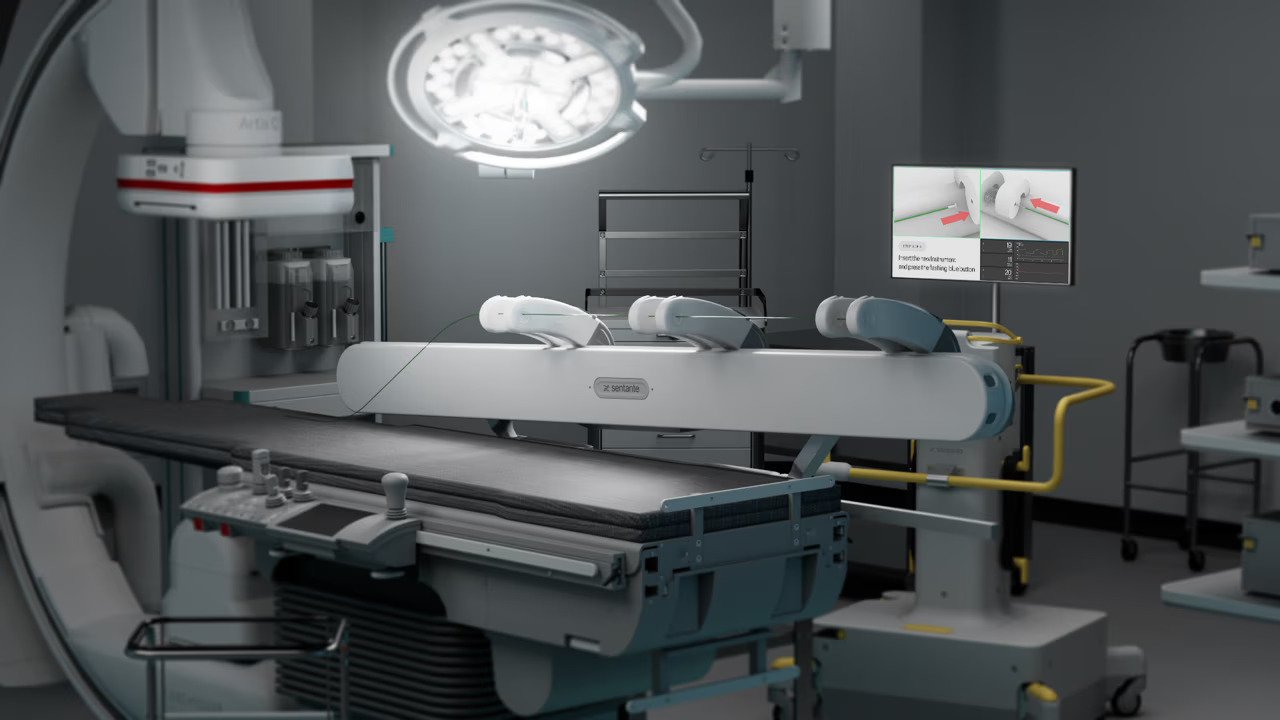Surgeons Achieve the First-Ever Robotic Stroke Surgery Across the Atlantic
In a groundbreaking medical milestone, a team of neurosurgeons from the University of Dundee and Florida successfully performed the world’s first robotic stroke surgery on a human cadaver. The procedure demonstrated how remote thrombectomy—removal of blood clots that cause strokes—could soon be executed in real time. Specialists could be thousands of miles away. Using advanced robotics created by Sentante, the operation was conducted between Ninewells Hospital in Dundee and a laboratory at the university campus. This revolutionary setup showed that robotic precision can be paired with ultra-low-latency connectivity. It can perform delicate neurosurgical maneuvers safely and effectively across continents.
The leading figure behind this innovation, Professor Iris Grunwald from the University of Dundee, described the event as “the first glimpse of the future.” She emphasized that every step of the thrombectomy process could now be replicated remotely. This breaks traditional barriers in medical access. As detailed on University of Dundee’s research portal, this institution remains one of the world’s few centers equipped to simulate live blood circulation in human cadavers. This capability is crucial for realistic surgical trials.
Transforming Global Stroke Treatment Through Robotics
Ischemic strokes occur when blood flow to the brain is blocked by a clot. Every minute of delay can cause irreversible brain damage. Currently, only 3.9% of UK stroke patients receive a thrombectomy. This is primarily because the procedure demands highly trained specialists located in limited urban centers. This disparity leaves thousands of patients without timely intervention. By leveraging robot-assisted surgery, experts hope to bridge this gap and make life-saving treatment accessible. This is especially important for rural or underserved regions.
The robotic system used in Dundee operates by connecting catheters and guidewires to a precision-controlled mechanical arm. A local medic can assist in preparing the patient. Meanwhile, the remote surgeon—located anywhere in the world—performs the procedure using real-time imaging and synchronized instruments. Companies like NVIDIA and Ericsson supported the project by ensuring ultra-fast data transfer. Latency is as low as 120 milliseconds. This allows virtually instantaneous control across 4,000 miles.
This innovation could redefine telemedicine by merging robotic precision with human expertise. In theory, a surgeon could perform a thrombectomy from their home office. Meanwhile, the patient lies in a hospital on another continent. With connectivity advancements from 5G and beyond, such procedures could become standard in the next decade. This development could reshape how emergency neurological care is delivered worldwide.
The Next Frontier of Robotic Medicine
The successful test is not merely an academic exercise—it is a potential paradigm shift in modern healthcare. Prof. Grunwald and her collaborator, Dr. Ricardo Hanel from Jacksonville, plan to advance to clinical trials by next year. These tests will determine how soon patients might benefit from real-time, long-distance interventions. According to the World Federation for Interventional Stroke Treatment, of which Dundee serves as the global training hub, remote robotic operations could alleviate the chronic shortage of stroke specialists. This is particularly important in regions where distance is the difference between recovery and disability.
The implications reach beyond stroke care. The same robotic and telecommunication principles could soon enable cardiac catheterization, spinal surgery, and vascular repair from afar. Institutions like Mayo Clinic are already exploring ways to integrate remote robotics into daily medical practice. They cite the Dundee experiment as a “turning point in cross-border surgery.”
As global populations age and stroke rates rise, the promise of robotic stroke surgery lies not just in its technological brilliance. The human impact of giving equal access to critical care regardless of location is paramount. The success of this Dundee-Florida collaboration may well mark the dawn of a new era in medicine, where geography no longer limits survival.



